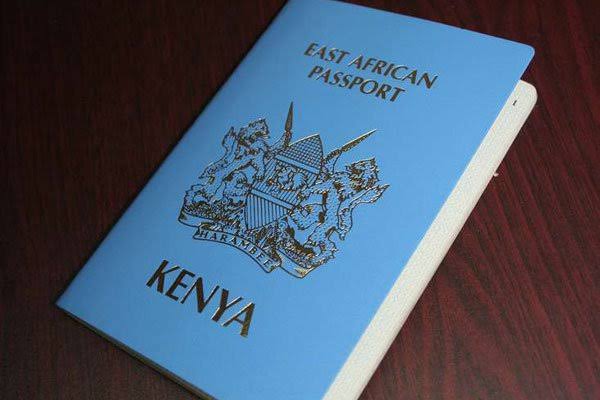
Kenya’s passport has fallen two places in the latest Henley Passport Index, sliding from 67th to 69th globally in 2024, with holders now enjoying visa-free or visa-on-arrival access to 71 destinations.
The drop comes despite recent gains, including a six-place rise last year from its previous position of 73. Over the past two decades, however, Kenya’s travel document has experienced a steady decline, losing nearly 20 positions since 2005, when it was ranked 51st. Its lowest point came in 2021, when pandemic-related restrictions pushed it to 77th place worldwide.
Kenyan passport holders currently enjoy visa-free entry to all East African Community member states — Uganda, Tanzania, Rwanda, Burundi, DR Congo and South Sudan — as well as to several Southern African countries, including South Africa, Mozambique, Botswana, Madagascar, Zambia and Namibia. A number of other nations across Africa, Asia and parts of North America also grant Kenyans visas on arrival.
Kenya itself offers visa-free entry to citizens of more than 40 countries, with most nationalities permitted to stay for up to 90 days. South African and Malaysian travellers, however, are limited to a maximum of 30 days.
The number of visa-free destinations available to Kenyans is expected to grow following last week’s announcement that Kenya will abolish the Electronic Travel Authorisation (eTA) and visa requirements for all African nationals. Under the new policy, citizens of all African countries will be able to enter visa-free for up to 90 days, without forms, online approvals or the $30 eTA fee.
Kenya’s passport remains among the strongest in Africa, ranking eighth on the continent. Seychelles, Mauritius and South Africa top the regional list, holding global positions 25, 29 and 48 respectively, with visa-free access to 156, 151 and 106 destinations. Other African nations in the top tier include Botswana, Namibia, Lesotho and Malawi.
Globally, Singapore retains the world’s most powerful passport, offering visa-free entry to 193 of 227 destinations. Japan and South Korea share second place with access to 190 destinations, while seven European Union countries — Denmark, Finland, France, Germany, Ireland, Italy and Spain — jointly occupy third with access to 189 destinations.
The United Kingdom and United States continue to slide, dropping a place each since January. Once world leaders in travel freedom — the UK in 2015 and the US in 2014 — they now rank sixth and tenth, with access to 186 and 182 destinations respectively.
Dr. Christian Kaelin, inventor of the Henley Passport Index, said the findings highlight growing competition in global mobility.
“The consolidation we’re seeing at the top underscores that access is earned — and must be maintained — through active and strategic diplomacy. Nations that proactively negotiate visa waivers and nurture reciprocal agreements continue to rise, while the opposite applies to those that are less engaged in such efforts,” Kaelin noted.



